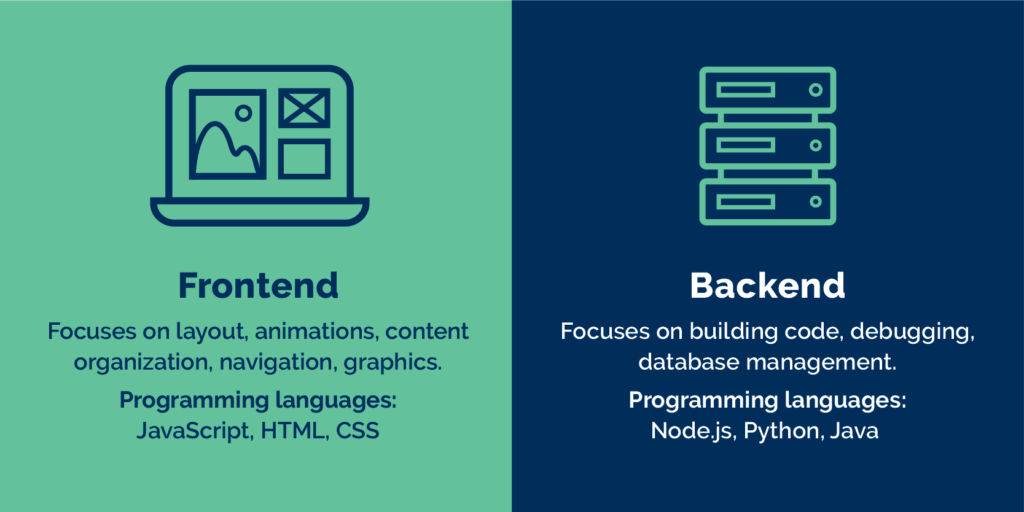A2102 Insights
Explore the latest trends and news on technology, lifestyle, and more.
Code Whisperers: The Unsung Heroes of Back-End Development
Discover the hidden talents of back-end developers and why they are the true heroes behind your favorite apps—unlock their secrets now!
Understanding the Role of Back-End Developers: More Than Just Code
Back-end developers play a crucial role in the digital landscape, serving as the backbone of web applications. While many people perceive them as mere code writers, their responsibilities extend far beyond that. Strong programming skills are essential, but their expertise in database management, server configuration, and API integration is what truly drives functionality. They ensure that users have a seamless experience by creating robust and efficient systems that handle data processing, storage, and communication with the front-end. Without these skilled professionals, a website would lack its core functionality.
Moreover, back-end developers are essential collaborators in a wider team environment. They communicate regularly with front-end developers to ensure that the user interface and business logic align perfectly. They are also responsible for implementing security measures to protect sensitive data and ensure compliance with industry standards. In many cases, they must troubleshoot issues, optimize performance, and adapt to new technologies, keeping them at the forefront of innovation in the tech world. Thus, understanding the role of back-end developers highlights their contribution as pivotal to both the technical and strategic success of web projects.

Top Skills Every Back-End Developer Needs to Succeed
Back-end development is a critical aspect of web development that focuses on server-side programming and database management. To excel in this field, a developer must possess a diverse skill set. Proficiency in programming languages such as Python, Java, Ruby, and PHP is essential, as they form the backbone of server-side development. Additionally, understanding frameworks like Django, Spring, or Node.js can significantly enhance a developer's ability to build robust applications efficiently.
Another key skill that every back-end developer should master is database management. Familiarity with both SQL databases, like MySQL and PostgreSQL, and NoSQL databases, such as MongoDB, is crucial for effective data handling and storage. Furthermore, knowledge of API development is vital, as it enables seamless communication between the server, application, and front-end interfaces. By combining these skills, back-end developers can create scalable and efficient web applications that meet user demands.
How Back-End Development Enhances User Experience: A Closer Look
Back-end development plays a crucial role in enhancing user experience by ensuring that all the processes on a website or application run smoothly and efficiently. By utilizing robust server-side languages such as Python, Java, or Ruby, developers can create seamless connections between the web server, application logic, and database. This optimized communication allows for fast page load times and reduced latency, resulting in a more enjoyable browsing experience for users. Moreover, effective back-end development enables the implementation of essential features such as user authentication, data processing, and transaction handling, all of which are vital for keeping users engaged and satisfied.
Furthermore, back-end development is key to personalizing the user experience. By integrating databases and leveraging user data analytics, developers can offer customized content and recommendations based on individual preferences and behaviors. For example, e-commerce websites often use back-end technologies to track user interactions and suggest products that align with their browsing history. This not only improves user engagement but also boosts conversion rates. Ultimately, a well-structured back-end architecture is the backbone of any successful online platform, ensuring that users receive quick, relevant, and highly interactive experiences.